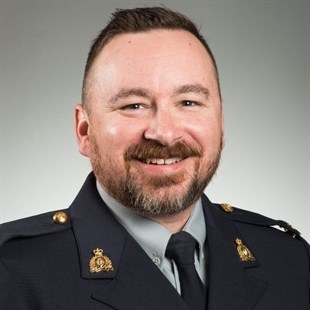
Image Credit: ADOBE STOCK
April 21, 2025 - 6:00 AM
A Hells Angels prospect was arrested in Kelowna earlier this month for a sex crime that he’s charged with in Ontario and the process for prosecuting criminals like him over provincial borders is more complicated than you might expect.
Colin Michael Bayley, 36, was taken into custody and sent back to Ontario to face charges for sexual assault, assault and uttering threats to cause death, April 5. Bayley was arrested in Kelowna back in 2019 and the RCMP described him as a prospective member of the Hells Angels at the time.
Since the warrant for his arrest was based in Ontario the BC RCMP Fugitive Return Program, Niagara Police Service Human Trafficking Unit, the Niagara Crown Attorney’s Office and the Ontario Provincial Human Trafficking Prosecution Team had to work together to get the warrant extended to Canada wide so he could be arrested in B.C.
The BC Fugitive Return Program coordinates efforts like this one to bring criminals back to the jurisdiction where they have been charged so they can have their day in court.
“There's a really technical process behind this because we have to confirm the warrant is still valid with the originator, we have to work with the prosecution service and the BC Sheriff's Service for the transfer, then the local police agency, whoever that might be, whether it's RCMP or a municipal police agency to affect the arrest, so it gets pretty technical,” BC RCMP senior media relations officer Staff Sgt. Kris Clark told iNFOnews.ca.
The process starts when the police agency searching for a fugitive puts out a Canadian Police Information Centre message that tells another agency that the fugitive might be in their area. In Bayley’s case the Niagara Regional Police Service would be communicating with the Kelowna RCMP.
Then the warrant would have to get extended, and then the local police force could track down and arrest the fugitive. Once they are in custody they get sent back to be prosecuted.
The program has a set of criteria to target violent offenders. In order to be a target for the program criminals usually need to do something violent beyond simple assault or simple threats. Crimes like sexual assault, robbery and aggravated assault fit the program’s criteria.
Someone could also be a target if they have tried to undermine the justice system by failing to appear in court several times or breaching a probation order. The program also targets organized crime and crimes committed against vulnerable people like senior scams.
READ MORE: 'Worst case scenario': Witness details grisly discovery in Bagabuyo trial
Clark said that someone could still be returned to another province for something less serious like mischief if they get arrested for something unrelated in B.C.
“I can't say that we would never try to extend a warrant (for mischief), but in order to meet the criteria for the Fugitive Return Program, they need to be at that higher level,” he said.

BC RCMP senior media relations officer Staff Sgt. Kris Clark.
Image Credit: SUBMITTED
Getting fugitives back to the jurisdiction where they have been charged so they can be prosecuted takes time, communication and money, but Clark said those aren’t obstacles.
“There's a process that has to take place, and that process can take time,” he said.
He didn’t have any definitive data for how often fugitives are returned for prosecution. He said it comes up on a case by case basis.
“We could have one happen today, and then we could have one happen next week, and then we could have one happen next year, so it all depends on intelligence,” Clark said.
Some criminals think they can evade the system by hopping borders to a different province, he said.
“Offenders that try to avoid prosecution by moving to a different province, there's no assurance that you're safe from prosecution. Basically we want you to have your day in court, and certainly if you fit our criteria, we're gonna seek you out with our partners,” Clark said.
To contact a reporter for this story, email Jesse Tomas or call 250-488-3065 or email the editor. You can also submit photos, videos or news tips to the newsroom and be entered to win a monthly prize draw. Find our Journalism Ethics policy here.
We welcome your comments and opinions on our stories but play nice. We won't censor or delete comments unless they contain off-topic statements or links, unnecessary vulgarity, false facts, spam or obviously fake profiles. If you have any concerns about what you see in comments, email the editor in the link above. SUBSCRIBE to our awesome newsletter here.
News from © iNFOnews, 2025